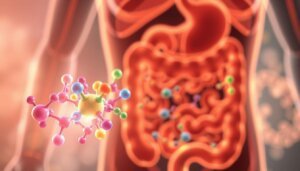Hormones are potent chemicals that have a profound impact on mental health and emotional well-being. They can influence mood, perception, and emotional stability, making hormonal balance crucial for psychological health. Understanding the relationship between hormones and mood swings is essential for managing emotional well-being.
Key Hormones Influencing Mood
Several hormones play critical roles in regulating mood:
- Estrogen: This hormone enhances the production and effects of serotonin, a neurotransmitter that promotes feelings of well-being and happiness. Estrogen also helps regulate the levels and activity of other neurotransmitters like dopamine and norepinephrine. Fluctuations in estrogen, as seen during the menstrual cycle, pregnancy, or menopause, can lead to mood swings and emotional disturbances.
- Progesterone: Known for its calming effect, progesterone can act on the brain similarly to neurotransmitters that promote relaxation and tranquility. Sudden drops in progesterone levels, which occur during the menstrual cycle, can trigger mood swings and irritability.
- Testosterone: This hormone impacts mood in both men and women, although men have it in higher levels. Low testosterone has been associated with depression, fatigue, and irritability. On the other hand, optimal levels are generally linked to improved mood and increased energy.
- Cortisol: Often referred to as the stress hormone, cortisol is produced by the adrenal glands in response to stress. While it is crucial for survival, chronic elevated cortisol levels can lead to significant mood disorders, including depression and anxiety.
Hormonal Fluctuations and Mood Disorders
Hormonal fluctuations can significantly impact mental health, especially in women. Conditions like Premenstrual Syndrome (PMS) and Premenstrual Dysphoric Disorder (PMDD) are directly linked to changes in hormone levels during the menstrual cycle. Similarly, during perimenopause and menopause, the dramatic fluctuations and overall decline in estrogen and progesterone can lead to mood swings, anxiety, and depression.
Men are not immune to the effects of hormonal changes on mood. Low testosterone levels can lead to mood instability, depression, and decreased motivation, often referred to as male menopause or andropause.
Managing Mood Swings Related to Hormonal Changes
Effective management of hormone-related mood swings often involves a multi-faceted approach:
- Lifestyle Modifications: Regular exercise, a balanced diet, adequate sleep, and stress management can help stabilize mood swings. Exercise, in particular, stimulates the production of endorphins, chemicals in the brain that act as natural mood lifters.
- Medication: In some cases, hormonal supplements or medications may be necessary. For instance, estrogen therapy might be prescribed to manage menopausal symptoms, including mood swings. Similarly, antidepressants or anti-anxiety medications may help stabilize mood in severe cases.
- Psychotherapy: Talking therapies, such as cognitive behavioral therapy (CBT), can be very effective in managing mood swings. These therapies can help individuals develop coping strategies to deal with emotional instability linked to hormonal fluctuations.
- Holistic Therapies: Techniques such as meditation, yoga, and acupuncture have been shown to improve symptoms of hormonal mood disturbances by promoting relaxation and emotional balance.
Conclusion
Hormones play a significant role in regulating mood and emotional stability. Fluctuations in hormone levels can lead to mood swings and impact mental health. Understanding these effects is crucial for developing effective strategies to manage mood-related symptoms and enhance overall emotional well-being. Through a combination of lifestyle changes, medical treatment, and psychological support, individuals can achieve better hormonal balance and improved mental health.


